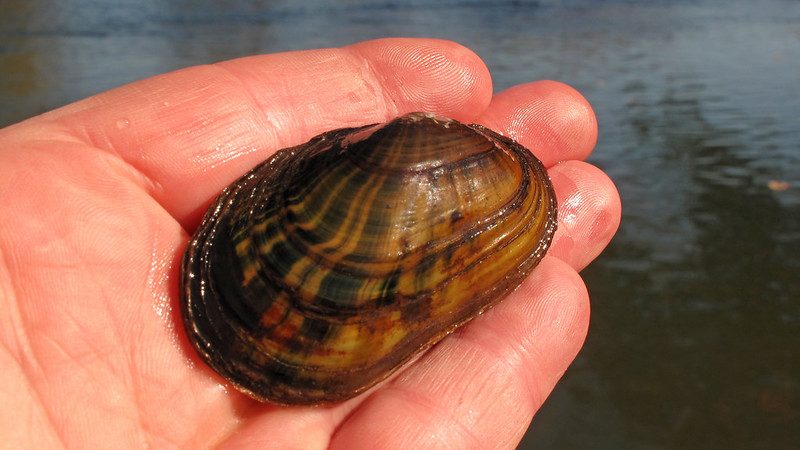April 20, 11AM ET: SE CASC Science Seminar – Sea Level Rise and Salinity Impacts on At-risk Native Freshwater Mussels

Join us for virtual science seminars highlighting SE CASC funded projects supporting resource management actions across the Southeast. Each month a SE CASC researcher will provide an overview of their work and the management implications of their research findings.
Learn about other Science Seminars
Impacts of Sea Level Rise and Associated Salinity Changes on At-risk Native Freshwater Mussels and Their Habitats in Atlantic Coastal Rivers
Joseph McIver (NC State University)
April 20, 2023 | 11AM ET
View recording here.
Freshwater mussels can be negatively impacted by water salinization associated with climate-induced sea level rise. Sea salt is largely made up of sodium chloride. However, sea salt contains other ions such as potassium, sulfate, and calcium. The collective impact of these ions on freshwater mussel fitness and organ tissues is not clearly understood.
In this study, acute toxicity tests were conducted on 3 species of juvenile and glochidia (microscopic larval stage) freshwater mussels. Chronic toxicity tests were administered on two species of sub-adult freshwater mussels that inhabit Atlantic Slope drainages, exposing glochidia and juveniles of each species to seven concentrations of synthetic sea salt ranging from 0 to 34 parts per thousand (ppt). Glochidia underwent 48-hour acute toxicity tests and juveniles underwent 96-hour acute toxicity tests. Chronic toxicity tests were conducted in laboratory and natural waters to obtain environmentally relevant results. By day four, extensive mortality and notable damage to the digestive system was observed for one mussel species. Mean ion concentrations in body tissues varied significantly from baseline levels in numerous treatments.
The seminar will discuss results of this research, which can inform freshwater mussel conservation strategies in regions that are or will be impacted by freshwater salinization associated with climate-induced sea level rise.
More about the speaker
Joseph McIver is a recent M.S. graduate of North Carolina State University, where he investigated the impact of sea salt on freshwater mussel viability and organ systems. Joseph has held a variety of environmental positions within the private sector, State of North Carolina, and academia since 2015. He strives to become a well-rounded environmental scientist who can foster effective working relationships with a diversity of stakeholders. In 2022, Joseph was awarded the Richard L. Noble Best Student Presentation Award by the North Carolina Chapter of the American Fisheries Society. Joseph resides in Holly Springs, NC. He enjoys spending time with family, serving at his local church, and painting landscapes.

- Categories: